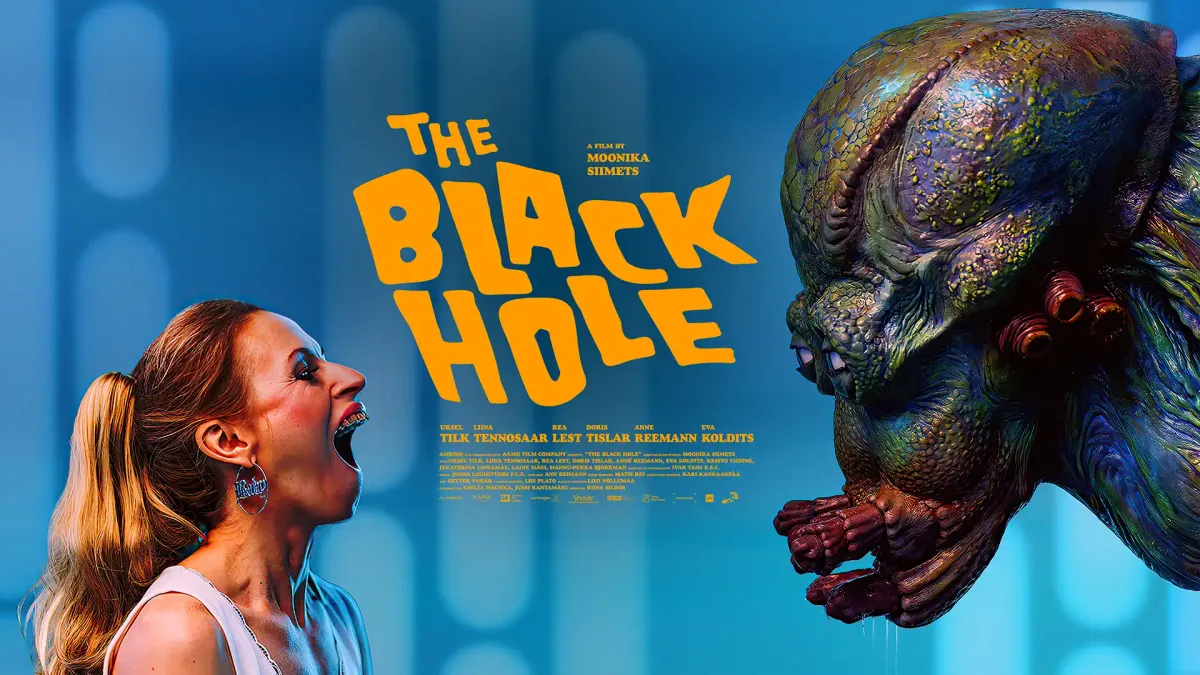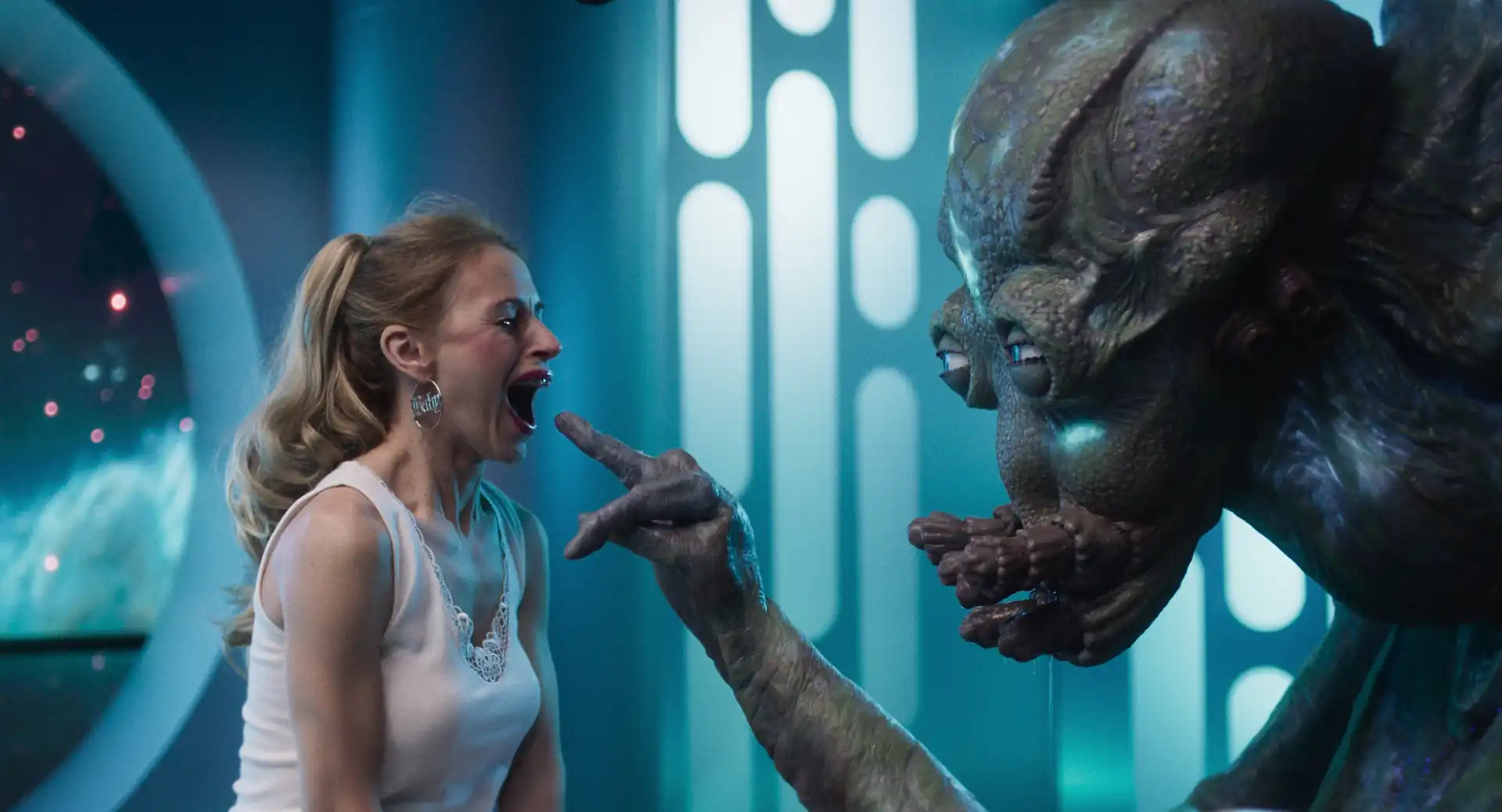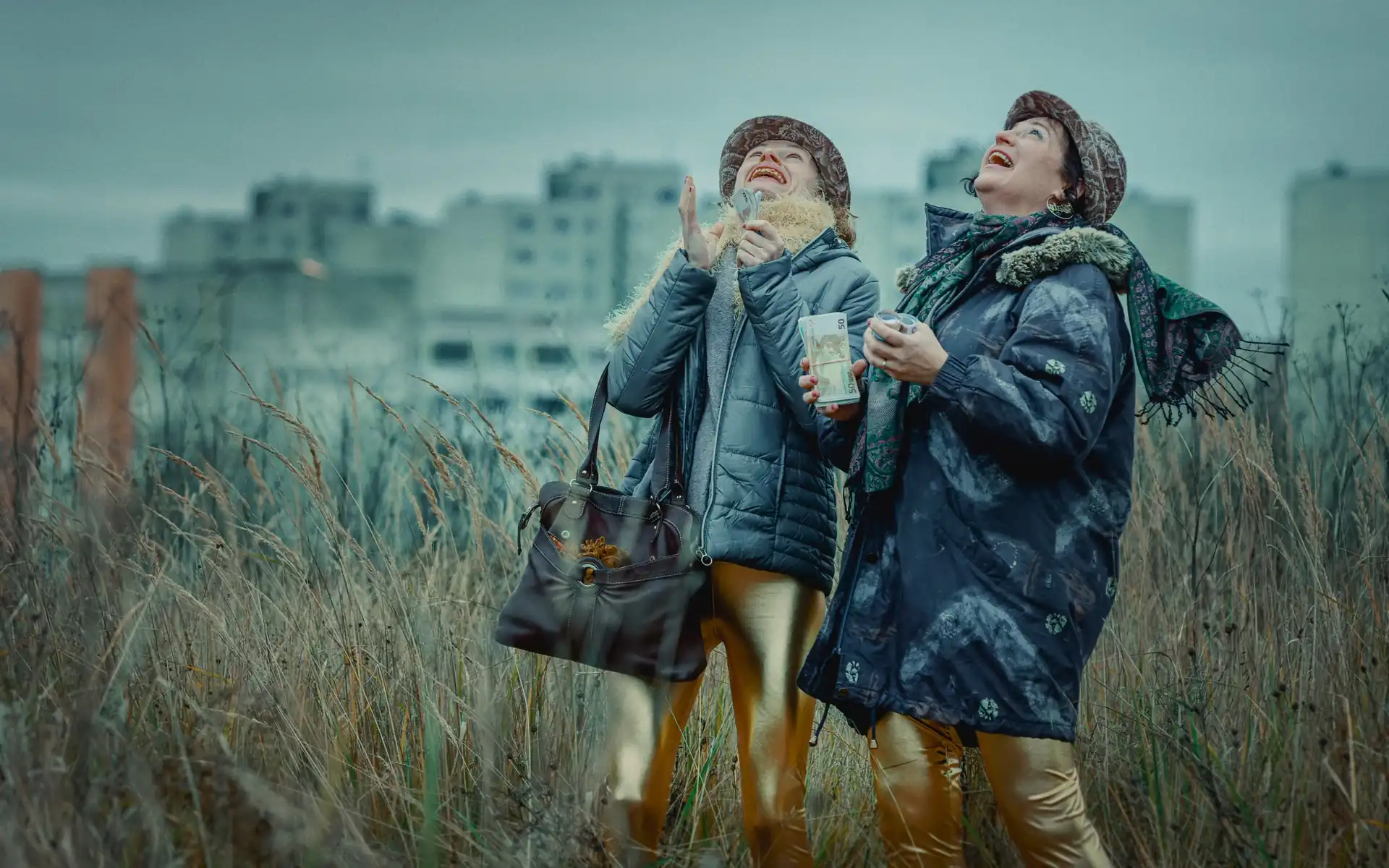Every filmmaker looks at people in a different way. Few see the world like Moonika Siimets, the writer and director behind The Black Hole, a wildly funny and surprisingly moving sci-fi fable set in Estonia.
Siimets visited Finland for the Night Visions Film Festival, and I got a chance to talk with her about the origins, humor, and humanity behind her superb film.
This interview is edited and condensed for clarity. Check out the review for The Black Hole in the link below.

Did you find more freedom in talking about these topics in a film as genre-breaking as this compared to working on a documentary?
I think so. It was very important for me, because even if it's sci-fi, that it's still about human beings. About what it means to be a person and to be lonely.
When I read the short stories that inspired the film, the alien was a kind of god, someone who looks at us having our adventures, so it was liberating to have that element.
When did you decide that you were going to make it?
I had made some short films during my Master's Degree. There was one called The Last Romeo, a musical, that was really dark, really hardcore. I found that I liked that type of storytelling. Then I met the author of My Mustamäe, who gave me his book, and I found his strange and dark humor really appealing. It was very familiar, too, this world of people living blockhouses. I started to write it, but then came The Little Comrade, which was a totally different kind of movie, that I made in between.
As I was writing The Black Hole, I felt it was still missing one element, which is when I discovered this short story about two women dreaming of going to Finland, who meet an alien. Life is strange in a way: I was doing that Two Hours From Happiness, so this subject was already very familiar to me. I took a lot from that documentary into The Black Hole. The way people talk, casting, even some lines are directly from real life that made it into the film.

What was the process like communicating that reality mixed with something as fantastical as aliens to your cast and crew? Did they get it right away?
At times it was difficult to explain to some people what I wanted to do. We had VFX people who wanted it to be very fantastical. I had to tell them it needed to be clumsy, muddy, and not perfect at all. It needed to look Nordic. It's OK that these types of things aren't perfect, because that's what they'd look like if they were real.
I come from Southern Estonia, where we have these folklore stories of nature spirits and ghosts and demons who come and communicate with people. We try to fool them in an effort to become rich or luckier. It was interesting to think how that would look like in an urban landscape. It's how we mythologize and demonize communities even in present day, because we don't understand them.

Was that the same with balancing the tone? It's a film that goes often from deeply funny to unnerving and very sad.
The cast enjoyed it very much! Maybe the costume designers had some questions. Like: "Moonika, are the gold leggings too much?" No, they're perfect!
It was important to me that they don't try to be funny. The girls really do feel lonely, and there's a genuine sadness in wanting to go to Finland. Comedy comes from the situation. But the inside has to be dramatic, it needs this big human catastrophe for the humor to work.
It's so recognizable. It captures really well how people build communities everywhere they go.
I come from this blockhouse universe. I know what it means to live there. But when you're there, you don't think about it. It's home. It even has an element of romanticism to it. A sunset looks pretty even over a warehouse. But I remember the dream to leave and live elsewhere. It was beautiful and sad. Especially as most people live like that today. Most of us here come from places like that.
It was more difficult to communicate the border between reality and the fantastic world. I wanted to be dirty and realistic and also this weird feeling of how much into fantasy we could go.
But it's also about the dream of living somewhere else. Like some other place is the promised land. It's a symbol, a dream for people to be in a better place or being loved by someone. It's about the loneliness of dreaming.











